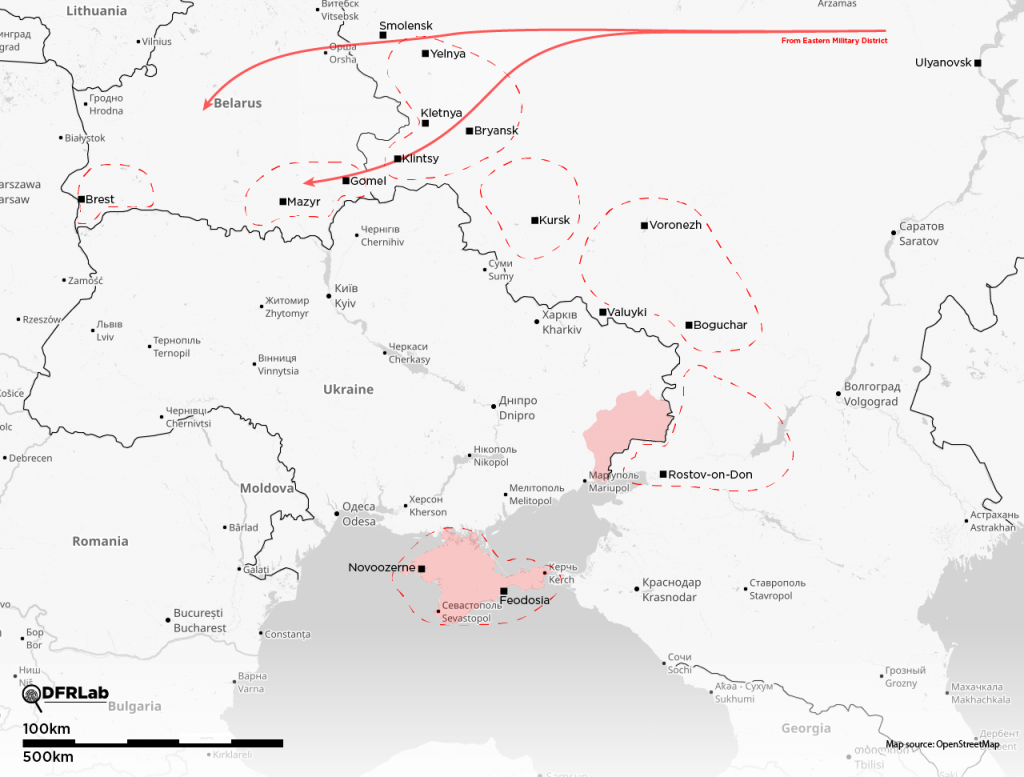Russia: "Main Issue", "Secondary Issues"
"As far as this document goes, there is a reaction that allows us to hope for a start of a serious discussion but on secondary issues."" There is no positive reaction to the main issue."Russian Foreign Minister, Sergey Lavrov"There is a scope for dialogue.""[President Putin would analyze the response in full before any further move]. It would be foolish to expect an answer as early as next week."Dmitry Peskov, spokesman, for Vladimir Putin"It's always very sensitive when it's about children. It creates a lot of tension and stress for the parents, for the whole society.""It ties up law enforcement services It's easier to make a mistake when the constant tension makes everyone tired.""It is [meant to] destabilize and demoralize the population."Alina Prolova, deputy head, Ukraine Center of Defense Strategies think tank, former deputy defence minister of Ukraine
 |
A morning at a school in Kiev. Oleksander Shcherbyn, Ukrainian police demining unit |
At strategic loggerheads, both sides -- in the debate over whether or not the long build-up of Russian troops and military equipment on the border with Ukraine is meant to intimidate in the short term, and prepare for an invasion in the longer term -- digging in their heels. While Moscow claims it is prepared for "serious conversations" to defuse the Ukraine crisis, the U.S. and NATO have proposed areas of co-operation on a wider scale.
To an objective observer, defusing Moscow's concern over American and NATO missile silos defensive sites in Europe which Russia views as having hostile intent toward it, and has led Moscow to denounce U.S. and NATO intentions as militarily malicious, would rank high. Certainly more so than Vladimir Putin's ultimatum to NATO that it must withdraw its members' forces from eastern Europe, and it must never allow Ukraine entry to the military alliance.
But the disposition of Ukraine as a fully sovereign nation entitled by international law to decide its own fate and alliances looms with greater importance to Mr. Putin who views Ukraine as a geographic, cultural, social and political part of Greater Russia. Washington has proposed vital cooperation in areas that should be of great concern to both political adversaries; reviving arms control treaties, limiting military exercises; granting Moscow access to NATO sites in Europe for observational purposes.
 |
| The DFRLab uses social media monitoring and geolocation techniques to identify the presence of Russian forces deployed along Russia’s border with Ukraine. Those forces are now present in Belarus as well. (Source: Michael Sheldon/DFRLab/OpenStreetMap) |
This is what Moscow refers to as "secondary issues". Its determination to possess command of Ukraine transcends the issues that are intended to make the world a safer place. So misdirected its priorities as to bemuse any rational mind. Instead, cyber attacks, threatening rhetoric, scheduling war games with nations bordering Ukraine that are firmly in Russia's political orbit continue to fray the sense of national security that sustains Ukraine.
And in Kyiv a Ukrainian bomb disposal expert is teaching students at a school in the capital all about explosives and what to be aware of. The training was organized by law enforcement following a series of hoax bomb alerts that forced the evacuation of schools in the city along with others, including the cities of Kharkiv, Lviv and Zaporizhzhia. These are threats targeting schoolchildren with fear-mongering that point directly to Russia in its hybrid war.
"The purpose of Russian special services is obvious -- to put additional pressure on Ukraine, sow anxiety and panic among the public", explained Ukraine's Security Service which had recorded over 300 bomb threats so far this year alone in comparison to 1,100 that took place during the entire 2021 year. Russian officials, on the other hand, blame Ukraine for similar bomb hoaxes, forcing Russian schools, shopping centres and kindergartens to evacuate tens of thousands.
It is difficult to credit mature societies, responsible governments resorting to such tactics meant to intimidate, strike fear, and demoralize another society. Striking at the very heart of any civilized society by targeting the most vulnerable in the population; its children. Ukraine's Center of Defense Strategies think-tank concentrates on what it speaks of as the main threat it faces; "a hybrid invasion" comprised of more cyber attacks, disinformation, and bomb threats aimed at schools, subway systems, administrative offices and other civil and official infrastructures.
Leaving Kyiv to hold emergency bomb drills for children. Where bomb experts explain that a small, unassuming-looking device is capable of holding a kilogram of explosives with enough power to kill anyone standing within five metres, wounding others up to 15 metres' distance. Classes shown video clips of explosions along with explosive devices meant to appear as though they're a box of chocolates or a mobile phone case.
 |
| Hundreds of Ukrainian schools have had to be evacuated since the start of the year amid a spate of fake bomb threats that Kyiv blames on Russia. |
Labels: Bomb Hoaxes, Cyber Attacks, Fear-Mongering, Intimidation, Invasion, NATO, Russia, Threats, Ukraine, United States
0 Comments:
Post a Comment
<< Home